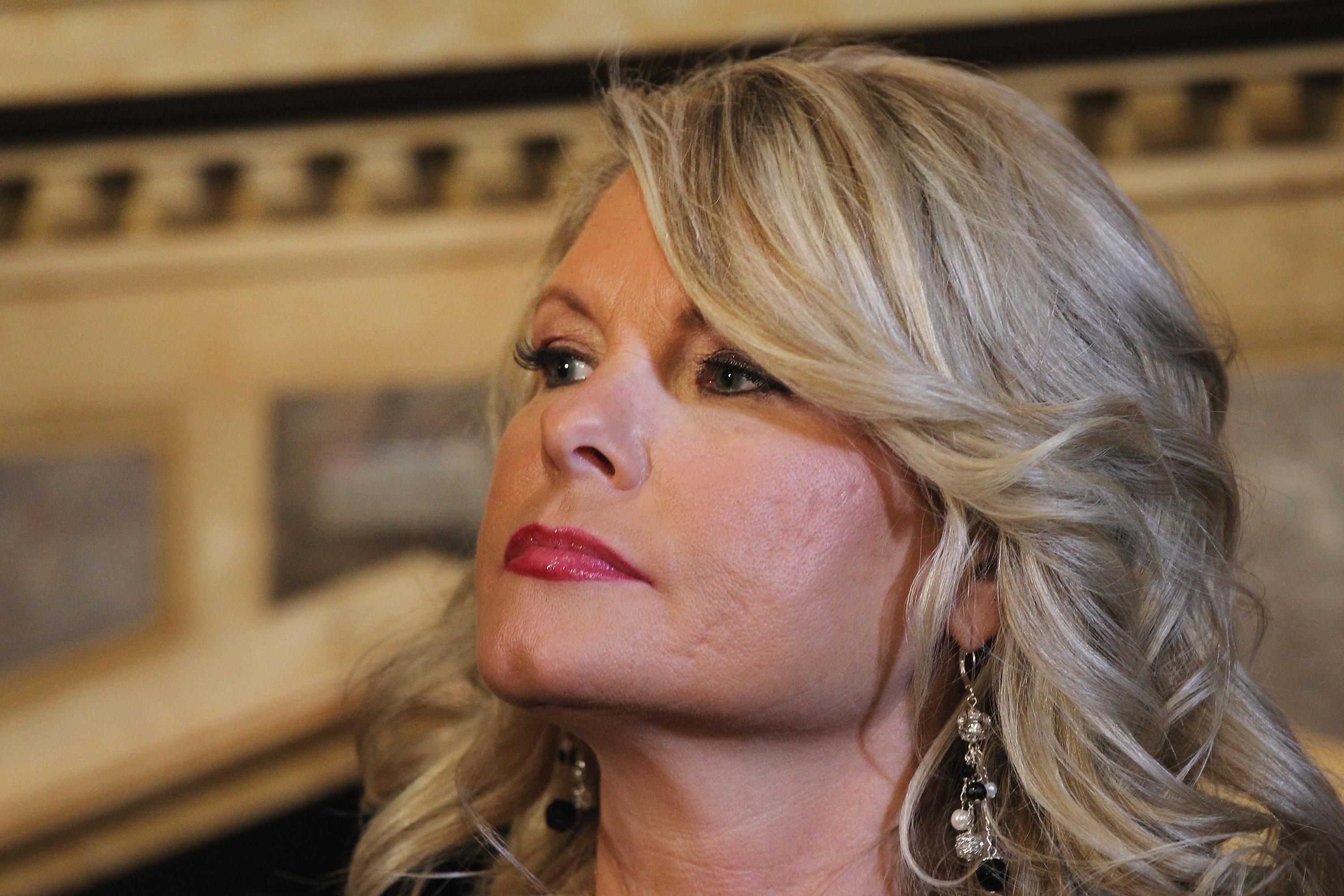Earlier today, my colleague David Weigel introduced us to “Women for Cain,” a website that represents Herman Cain’s last ditch attempt at connecting—consensually!—with female voters. Visitors are encouraged to post words of support for a candidate who has, according to the site, “been a strong advocate for women throughout his lifetime, defending and promoting the issues of quality health care, family, education, equality in the workplace and many other concerns so important to American women.”
While many of the commenters exhort Cain to continue his campaign for purely political or religious reasons, a considerable number of the posts also focus on the accusations of sexual harassment and infidelity that have been leveled against the candidate in the past few weeks. Unsurprisingly, these writers roundly doubt the accusers; but some go further, implying that they are something other than real women. Ironic quotation marks appear around the word women (as in “women”) in at least three of the posts, suggesting that these ladies are somehow a different breed from the women (sans quotes) who are commenting.
So what’s the difference between “women” and women? Let’s put on our close-reading glasses to find out. (I won’t reproduce the entire posts here, but you can find them on the site.)
Cheryl Vaglienti from Georgetown, Texas, argues that “women” are people who crawl “out from under rocks” to “bring pain” to Cain and his family. Furthermore, they are “pitiful creatures at the very least, and evil at the most,” and “poor babies” who “suddenly become offended by supposed advances by [Cain] now” because they have not been able to “bare up under the pain for all these oh so many years.”
Meanwhile, Karla Heidt of Queen City, Texas, theorizes that “women” are agents of “Satan and his demons” who aim to undermine a “God-fearing man who loves his wife and children.” Angela Schudy, who hails from Nixa, Mo., adds that “women” are a “bunch of bad actresses” trained by the “Demonacrats.” Moreover, they are clearly interested in “money and attention.”
Here’s what we can glean from these comments. First, “women” are, at worst, threats to the stability and security of the (Christian) family. Their efforts to call out a self-proclaimed family man for sexual harassment and/or infidelity are viewed, perversely, not as demands for justice or truth, but as malicious attack on family values. And even if they’re not actually satanically motivated, “women” are definitely dishonest whiners; because they choose to complain about an alleged sexual impropriety, they are “pitiful” weaklings who just want to get rich and famous instead of “bar[ing] up” under stress and pain like real women.
It’s telling that many of these posters go on to detail how their own ability to deal with hardship and male privilege makes them authentic women. For example, Kim Gash of Kansas City, Mo., writes:
They [“women”] are an insult to sucessful [sic] working women. I have been successfully self employed in a male dominated industry, commercial real estate, and never once did I have a problem with any male counterpart. I was fortunate that I was mentored because I worked for it. So I can relate to you in your journey of success.
Instead of recognizing that her case might be an exception to the rule, Gash goes with a classic “bootstraps” narrative, the underlying message of which is that real women keep their mouths shut, work hard and tough it out, while “women” gripe and cry and manipulate to get ahead.
This distinction goes a long way toward explaining how Cain could still have any female supporters at all in the wake of these allegations. (Presuming, that is, that these women are real women, and not figments of the website.) There is no notion of sisterhood, no sense that an assault on one woman is an assault on all women. And so, the cognitive dissonance that should come of supporting a man whose opinion of your sex is, at the very least, highly suspect, is resolved, with a twisted bonus: other women become the targets of anger that should be directed at institutionalized sexism.
It’s a win-win for inequality and a tragic loss for women—and “women”—alike.
